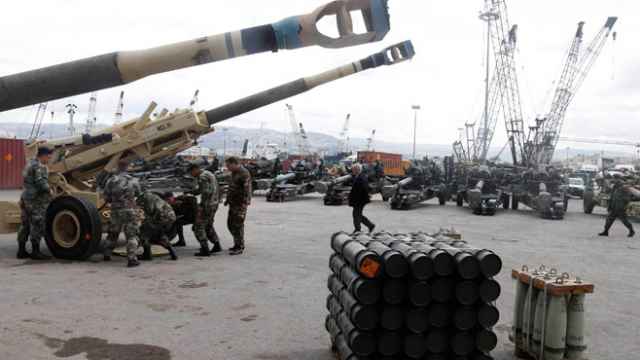SARAJEVO — Bosnia banned arms and ammunition exports to Ukraine on Wednesday, following pressure from Bosnian Serbs and saying the conflict there should be resolved by peaceful means.
Bosnian arms producer Unis Group recently secured a 5 million euro ($5.66 million) deal to supply Ukraine with arms and ammunition. But Bosnian Serbs, who nurture close ties with fellow Orthodox Christian Russia, objected to the sale.
Russia also called on Bosnia not to supply Ukraine with weapons.
The Serbs, who oppose deeper post-war integration with Muslim Bosniaks and Catholic Croats in Bosnia, have argued that allowing arms exports would harm their relations with Moscow.
Power in Bosnia since its 1995 peace treaty has been split along ethnic lines.
The presidency, in a statement, said arms sales to Ukraine were not in the interests of Bosnian foreign policy.
"They [arms exports] do not contribute to regional security, stability and ongoing international diplomatic efforts to broker a peaceful solution to the crisis in Ukraine," the presidency, which represents all three ethnic groups, said.
"The crisis in Ukraine can be resolved only through a peaceful, democratic means, political dialogue and negotiations, with full respect of the international law."
Bosnia is treading carefully in its relations with the West and with Russia. It is seeking to join the European Union and NATO but Russia is nurturing ties with Bosnian Serbs who are more hostile than Bosniaks and Croats to EU and NATO membership.
Former trade minister Boris Tucic, an ethnic Serb, resigned last month after refusing to clear the Unis deal.
Leaders of Russia, Ukraine, Germany and France were due to meet in Minsk on Wednesday to try to agree a cease-fire to end the pro-Russian separatist conflict in which more than 5,000 have been killed since last April.
A Message from The Moscow Times:
Dear readers,
We are facing unprecedented challenges. Russia's Prosecutor General's Office has designated The Moscow Times as an "undesirable" organization, criminalizing our work and putting our staff at risk of prosecution. This follows our earlier unjust labeling as a "foreign agent."
These actions are direct attempts to silence independent journalism in Russia. The authorities claim our work "discredits the decisions of the Russian leadership." We see things differently: we strive to provide accurate, unbiased reporting on Russia.
We, the journalists of The Moscow Times, refuse to be silenced. But to continue our work, we need your help.
Your support, no matter how small, makes a world of difference. If you can, please support us monthly starting from just $2. It's quick to set up, and every contribution makes a significant impact.
By supporting The Moscow Times, you're defending open, independent journalism in the face of repression. Thank you for standing with us.
Remind me later.





